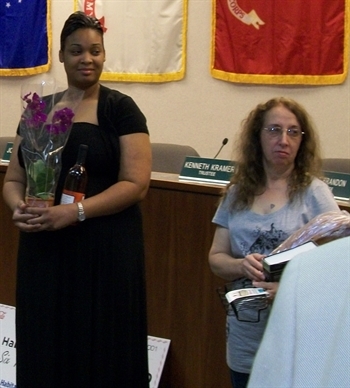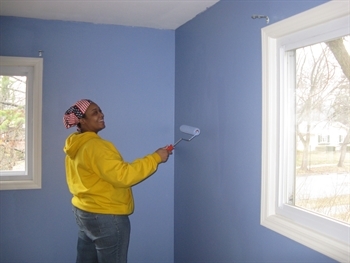Can a metropolitan region honestly call itself “globally competitive” if large parts of its population miss out on new opportunities?
That’s the question I explored with fellow panelists in a packed auditorium of civic leaders, policymakers, urban designers, and entrepreneurs at the Ford Foundation’s 75th anniversary forum, “The Just City: Creating a New Geography of Opportunity,” July 14 in New York City.
Our collective answer was an emphatic “no.”
We quickly moved beyond the challenge to discuss solutions. At each of the plenary sessions at the day-long event, we delved into examples of how major metropolitan regions are succeeding in expanding access to opportunity within a globally competitive marketplace. I was asked to share with my national cohorts how Chicagoland is creating new models for inclusive, sustainable, economically competitive community development, by participating as a panelist in the session entitled, “Breaking Down the Barriers,” which you can view in its entirety on Ford Foundation’s web site.
One such innovation that I focused on in my remarks is multi-town collaboration. The idea is relatively simple: When communities work together, they can do more with less, and in so doing, provide greater opportunities to more people in their communities.
Over the past few years, MPC has been invited to work with a number of community collaborations around metropolitan Chicago to help them address issues that do not adhere to municipal borders, such as housing, transportation and workforce development. We’re learning several ways in which the multi-town approach is truly a just approach to community and regional development.
: On July 11, the State of Illinois awarded $6.6 million to the Chicago Southland Housing and Community Development Collaborative to purchase and rehab or demolish vacant or abandoned homes. As anyone who has worked on the foreclosure crisis can tell you, there will never be enough funding to address the massive number of foreclosures our nation has experienced since the housing market crashed. Scarcity, however, is the platform through which creativity can flourish. Chicago’s south suburbs were the hardest hit area in our region, one impetus for their collaboration: Since 2009, 20-plus south suburbs have worked together to target limited foreclosure recovery funding – provided by the federal and Cook County governments – to areas near job centers and existing and planned rail lines. I’m impressed that these towns together have secured $19 million in less than two years. They’re pursuing targeted industry clusters, which has attracted kudos from the Obama administration and Brookings Institution.

Jaqueline and Sarah at dedication
Collaboration pays off – literally and figuratively
Collaboration also builds capacity, which helps communities help themselves in the long run: To strengthen the Northwest Suburban Housing Collaborative, The Chicago Community Trust, our region’s community foundation, recently awarded funding to help five neighboring suburbs hire a housing coordinator to work on their collective behalf. The reality for many municipalities, particularly in this economy, is that they don’t have the funds to support even one staff person devoted to planning – much less one person devoted to housing. When communities cannot plan, they miss big opportunities. This new coordinator will be a tremendous resource to the northwest suburbs of Arlington Heights, Buffalo Grove, Mount Prospect, Palatine, and Rolling Meadows, by serving as the point person advancing subregional housing strategies.
Collaboration ensures that good solutions help more people in our region. That’s because, as we’re finding out through our work with these communities, collaboration solves development challenges at the proper scale. The foreclosure crisis, a problem that touched nearly every community in our region, is an excellent example: As these partnerships find ways to address foreclosure-related issues – from property acquisition and rebuilding, to working with banks to track accurate data on foreclosed properties – more communities tap that knowledge. The result is that more people can live better lives in more stable communities. One example: On June 11, Sarah Hendrickson and Jacqueline Holmes were officially welcomed to their new homes in Park Forest, Ill., one of the communities participating in the south suburban collaborative. Through the efforts of Habitat for Humanity Chicago South
Suburbs and the village’s use of its foreclosure recovery funding, both women were able to purchase formerly vacant and foreclosed homes that were renovated – something the village will be able to repeat another 10 to 15 times in the coming months.
In turn, by tackling today’s challenges together, communities can free up time and resources to plan for the future: Even as they work to revitalize in the wake of foreclosures, those same collaborations in the south, west and northwest suburbs are all participating in the forward-looking Homes for a Changing Region. Through “Homes,” they will create a vision for future housing in each individual community, as well work together (with the added benefit of forecasting and analysis on housing, economic and population trends) to create a sub-regional plan that reflects their shared housing market.
At Just City, we confronted head-on a harsh truth: When government is looking to cut, cut, cut, justice can be framed as an “ideal,” not a must. But it is a must, and I think most people would agree. From our experience in metropolitan Chicago, I know communities can meet the challenge to do more with less and serve the people who need it most by working with their neighbors on joint strategies that address challenges at the proper scale, attract public and private investments, build local capacity, and preserve staff time and resources to do even more.